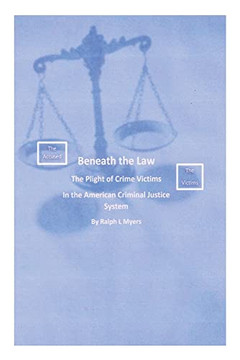
Self
The Japanese Way of Law : Exploring Criminal Justice for Everyone
Product Code:
9789360142117
ISBN13:
9789360142117
Condition:
New
$26.26
Ancient Roots: From the Feudal Age to the Meiji Restoration The origins of Japanese law can be traced back to ancient times, when the feudal system gave rise to an informal moral code, the ritsuryo. This code was based on tradition, duty, and social faith, and it emphasized the prevention of crime over punishment. During the 12th century, the shogunate military government emerged, which implemented a harsh military justice system without a jury system. Crimes were heard by the emperor or his representative, and punishments were often severe, including the death penalty. By the mid-19th century, Japan was bound by the shackles of the feudal system. The Meiji Restoration ushered in a new era, which brought Japan into a rapid pace of modernization. This transformation also had a profound impact on the legal system. Western models, especially the codes of France and Germany, were called upon to shape Japan's laws. As a result, modern Japanese law was born in the 1880s, incorporating a mix of the German Criminal Code and the French Civil Code. The Meiji Era: A Time of Legal Reform The Meiji Restoration was a period of great change for Japan, and the legal system was no exception. In the early Meiji period, the government made a number of reforms to the legal system, including: - The establishment of a modern court system, with a hierarchy of courts from the Supreme Court to the district courts. - The adoption of a new criminal code, which was based on the German Criminal Code. - The adoption of a new civil code, which was based on the French Civil Code.
| Author: Prabhakar Rao |
| Publisher: Self |
| Publication Date: Dec 06, 2023 |
| Number of Pages: NA pages |
| Language: Hindi |
| Binding: Paperback |
| ISBN-10: 9360142115 |
| ISBN-13: 9789360142117 |

The Japanese Way of Law : Exploring Criminal Justice for Everyone
$26.26
Ancient Roots: From the Feudal Age to the Meiji Restoration The origins of Japanese law can be traced back to ancient times, when the feudal system gave rise to an informal moral code, the ritsuryo. This code was based on tradition, duty, and social faith, and it emphasized the prevention of crime over punishment. During the 12th century, the shogunate military government emerged, which implemented a harsh military justice system without a jury system. Crimes were heard by the emperor or his representative, and punishments were often severe, including the death penalty. By the mid-19th century, Japan was bound by the shackles of the feudal system. The Meiji Restoration ushered in a new era, which brought Japan into a rapid pace of modernization. This transformation also had a profound impact on the legal system. Western models, especially the codes of France and Germany, were called upon to shape Japan's laws. As a result, modern Japanese law was born in the 1880s, incorporating a mix of the German Criminal Code and the French Civil Code. The Meiji Era: A Time of Legal Reform The Meiji Restoration was a period of great change for Japan, and the legal system was no exception. In the early Meiji period, the government made a number of reforms to the legal system, including: - The establishment of a modern court system, with a hierarchy of courts from the Supreme Court to the district courts. - The adoption of a new criminal code, which was based on the German Criminal Code. - The adoption of a new civil code, which was based on the French Civil Code.
| Author: Prabhakar Rao |
| Publisher: Self |
| Publication Date: Dec 06, 2023 |
| Number of Pages: NA pages |
| Language: Hindi |
| Binding: Paperback |
| ISBN-10: 9360142115 |
| ISBN-13: 9789360142117 |





